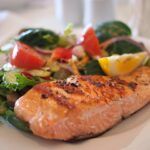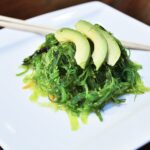
High blood pressure, or hypertension, is a common yet serious medical condition affecting millions worldwide. Often referred to as the “silent killer,” it typically shows no symptoms until it reaches a dangerous level. However, with awareness and proactive measures, managing hypertension is possible, and incorporating natural diet and holistic approaches can be effective strategies.
Understanding the Causes of High Blood Pressure:
- Lifestyle Factors: Sedentary lifestyle, unhealthy dietary habits, excessive alcohol consumption, and smoking are primary contributors to hypertension. These factors can lead to weight gain, high cholesterol levels, and increased stress, all of which elevate blood pressure.
- Genetic Predisposition: Family history plays a significant role in hypertension. If one or both of your parents have high blood pressure, you’re more likely to develop it too.
- Age and Gender: As individuals age, the risk of hypertension increases. Men are typically at a higher risk until the age of 64, after which women are more prone to developing high blood pressure.
- Underlying Health Conditions: Conditions such as diabetes, kidney disease, sleep apnea, and hormonal disorders can elevate blood pressure levels. Treating these underlying conditions is crucial in managing hypertension.
Holistic Treatment Approaches:
- Healthy Diet: Adopting a diet rich in fruits, vegetables, whole grains, and lean proteins can significantly lower blood pressure. The Dietary Approaches to Stop Hypertension (DASH) diet, which emphasizes fruits, vegetables, and low-fat dairy products, has shown promising results in reducing hypertension.
- Regular Exercise: Engaging in regular physical activity helps maintain a healthy weight, strengthens the heart, and lowers blood pressure. Aim for at least 150 minutes of moderate-intensity exercise per week, such as brisk walking, swimming, or cycling.
- Stress Management: Chronic stress can elevate blood pressure levels. Incorporating relaxation techniques such as meditation, deep breathing exercises, yoga, or tai chi can help reduce stress and promote overall well-being.
- Limiting Sodium Intake: Excessive salt consumption can increase blood pressure. Avoid processed foods, canned soups, and salty snacks, and opt for fresh, whole foods seasoned with herbs and spices instead.
- Maintaining a Healthy Weight: Obesity is a significant risk factor for hypertension. By maintaining a healthy weight through a balanced diet and regular exercise, you can reduce the strain on your heart and lower blood pressure.
- Herbal Remedies: Certain herbs and supplements, such as garlic, hibiscus, hawthorn, and omega-3 fatty acids, have been studied for their potential to lower blood pressure. However, it’s essential to consult with a healthcare professional before incorporating any new supplements into your regimen.
- Acupuncture and Acupressure: Traditional Chinese medicine practices like acupuncture and acupressure may help regulate blood pressure by promoting relaxation and improving circulation. These therapies are often used in conjunction with conventional treatments.
Conclusion:
High blood pressure is a prevalent yet manageable condition that requires a multifaceted approach to treatment. By addressing lifestyle factors, incorporating a healthy diet, and embracing holistic approaches such as exercise, stress management, and alternative therapies, individuals can effectively lower their blood pressure levels and reduce the risk of complications associated with hypertension. It’s essential to work closely with healthcare professionals to develop a personalized treatment plan that meets your unique needs and ensures long-term cardiovascular health.






